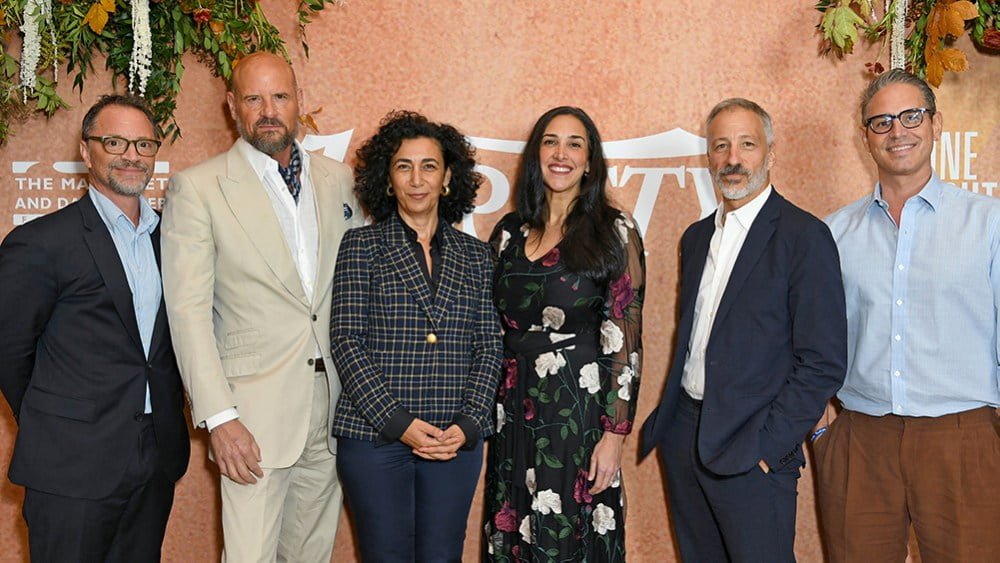Hollywood on the State of Antisemitism at Variety’s Summit
[ad_1]
“It’s great to see everyone here. I wish we were meeting under better circumstances is the truth,” Matti Leshem began, introducing a panel on the state of Antisemitism during Variety’s Hollywood & Antisemitism Summit, presented by The Margaret & Daniel Loeb Foundation and Shine A Light.
Leshem, a producer and founder of New Mandate Films, began the conversation by checking in with each panel member and their emotional states following the attack by Hamas on Israel that has killed more than 1,400 civilians.
“I’m enraged. I’m furious. I’m furious at so many things. I’m furious about the loss of life,” Alana Newhouse, founder and editor-in-chief of Tablet, began. “I’m also furious at how surprised people seemed. If you were surprised at what happened, you are not following the right people. There have been people who have been talking about this slow-and-then-fast-moving train for the last 10 years.”
Leshem also introduced Greg Berlanti, a prolific producer whom Leshem also called “the greatest ally of the Jewish people.” Berlanti was raised Catholic but found himself closely tied to the Jewish community growing up.
“I genuinely, no joke, thought I was Jewish. We celebrated everything. Everybody celebrated what we were celebrating,” Berlanti said, sharing that he and his husband decided to find a Jewish egg donor and are raising their children under the Jewish faith. “Through our children, we are part of the Jewish faith. This is a really traumatic week. It’s very been heightened and emotional. It’s an interesting role we’ve got to play in the sense of observing a lot of people who are suffering and in pain and feel isolated and alone in this community at times. We try to do our part to be there for other people.”
“Resiliency seems to be the Jewish story. Keeping a stiff spine through it all, because I feel that it’s going to get worse, David Kohan, creator and executive producer of “Will & Grace,” said. “Knowing that there are just and unjust wars — and this is a just war — and that being on the side of justice, and also feeling that at the end of this is resiliency, is giving me my spine.”
Leshem also emphasized the importance of the entertainment industry’s abilities as storytellers to fight antisemitism: “There’s kind of a call to action. I don’t know that we can come up with any practical solutions right now, but the Jews are the people of the book. Whether you’re actually Jewish or not is irrelevant, because if you’re a storyteller you’re ascribing to that ethos on some level.”
“In my admittedly limited experience, theater is doing a better job than TV and film these days. But maybe that’s in my own pathway,” said actor Joshua Malina, who was featured on the Netflix series “Inventing Anna.” “In the last year, I’ve gotten to tell two substantively Jewish stories and roles of my career. We did Nathan Englander’s ‘What We Talk About When We Talk About Anne Frank,’ a brilliant comedy about two Jewish couples, the wives of which went to yeshiva together… It’s a Jewish culture clash that’s both bitingly funny and deeply Jewish and deals with many of the things that Tom Stoppard deals with in ‘Leopoldstadt.’”
“I need stories that represent what I believe is the truth. I need stories with characters that I know and love and with themes that I believe in. That’s really all I can say. I can’t speak more generally than that,” Kohan said.
“We will all face opposition, now more than ever, to those kinds of stories,” Berlanti said. “What can I do to help individuals tell their specific stories to have more of an impact? The town gets very quiet… The first thing is to have the resolve within yourself to not just let the first wave of resistance dissuade you. If we wanted to a very specific Jewish story three months ago, it would’ve been challenging. How much resistance do you think there is going to be now?”
[ad_2]
Source link

